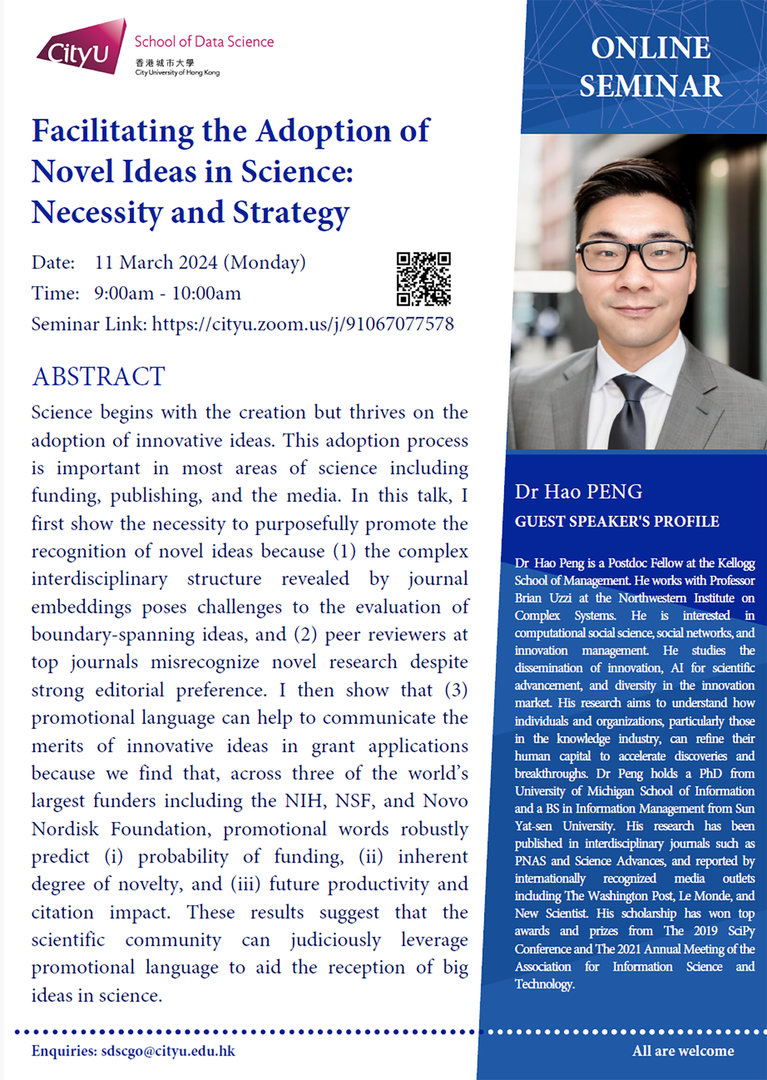
Science begins with the creation but thrives on the adoption of innovative ideas. This adoption process is important in most areas of science including funding, publishing, and the media. In this talk, I first show the necessity to purposefully promote the recognition of novel ideas because (1) the complex interdisciplinary structure revealed by journal embeddings poses challenges to the evaluation of boundary-spanning ideas, and (2) peer reviewers at top journals misrecognize novel research despite strong editorial preference. I then show that (3) promotional language can help to communicate the merits of innovative ideas in grant applications because we find that, across three of the world’s largest funders including the NIH, NSF, and Novo Nordisk Foundation, promotional words robustly predict (i) probability of funding, (ii) inherent degree of novelty, and (iii) future productivity and citation impact. These results suggest that the scientific community can judiciously leverage promotional language to aid the reception of big ideas in science.
Speaker: Dr Hao PENG
Date: 11 March 2024 (Monday)
Time: 9:00am – 10:00am
Poster: Click here
Latest Seminar
Biography
Dr Hao Peng is a Postdoc Fellow at the Kellogg School of Management. He works with Professor Brian Uzzi at the Northwestern Institute on Complex Systems. He is interested in computational social science, social networks, and innovation management. He studies the dissemination of innovation, AI for scientific advancement, and diversity in the innovation market. His research aims to understand how individuals and organizations, particularly those in the knowledge industry, can refine their human capital to accelerate discoveries and breakthroughs. Dr Peng holds a PhD from University of Michigan School of Information and a BS in Information Management from Sun Yat-sen University. His research has been published in interdisciplinary journals such as PNAS and Science Advances, and reported by internationally recognized media outlets including The Washington Post, Le Monde, and New Scientist. His scholarship has won top awards and prizes from The 2019 SciPy Conference and The 2021 Annual Meeting of the Association for Information Science and Technology.